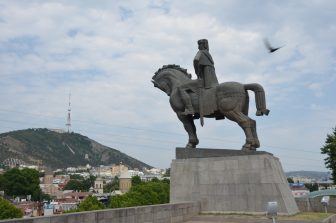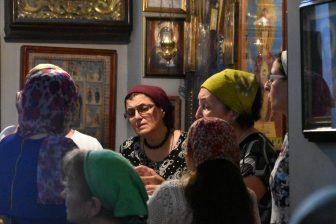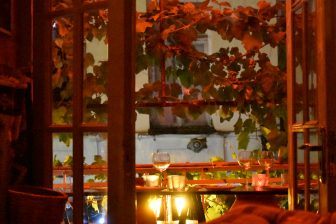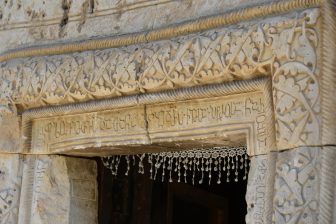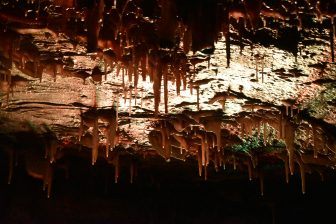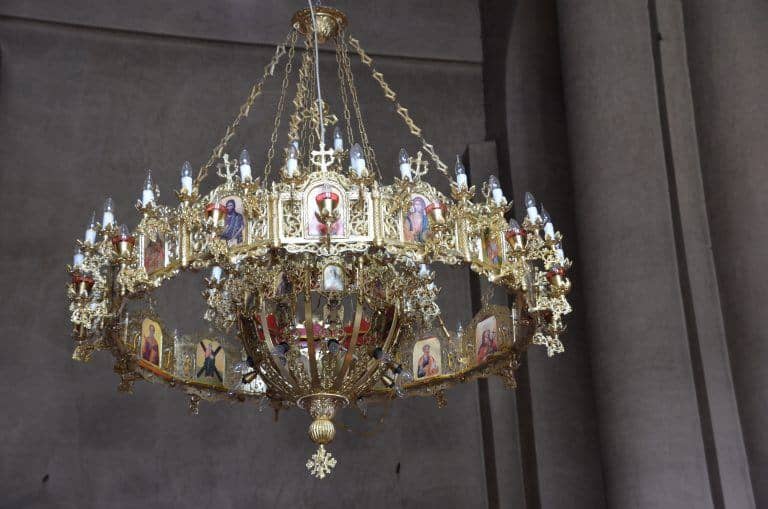
[ July 2018 ] After sleeping for only about one hour in the hotel in Tbilisi, the capital city of Georgia, we started our sightseeing tour in the city.
It was a private tour, but the schedule was fixed and it was quite busy.
At the hotel reception, a girl who was a little older than a child was waiting for us.
She was our guide, Ana, who was only 19 years old.
She was from Gori, the same as Stalin, and currently she was a student at Tbilisi State University.
She has never been to any English-speaking countries, but her English was perfect, with a little bit of an American accent.
Apparently, she learned it having watched American TV programmes since she was little.
Not only her English, but also her knowledge about history was very good, so although she was a working student, she did a very good job as a professional.
The first place this talented girl, who would become at least a minister or something in the future, took us was the hill where the Metekhi Church was.
Beside the church, there is an equestrian statue of King Vakhtang Gorgasali.
This region used to belong to the Kingdom of Iberia, which is said to be established in the 4th century BC.
This King Gorgasali moved the capital city of the kingdom from Mtskheta to Tbilisi in the 5th century.
There is a legend regarding this relocation of the capital:
One day Gorgasali came to the Tbilisi area to hunt with his falcon.
The falcon attacked a pheasant and both birds fell into a pond.
Gorgasali went to the pond and found that it was a hot spring.
He was so happy discovering it and that is why he moved his capital city here.
Of course there were other advantages here, for example, it was a relay point on the Silk Road and it was strategically advantageous because there were three hills surrounding it.
The king built the palace on top of this hill, but it was destroyed hundreds of years later by Mongols.
The part that survived was used as a prison by the Russian Empire and Stalin was locked in there for one year.
We went into the Metekhi Church, which was built in the 13th century.
They were holding a service and it was full of people.
Everyone looked very serious.
There were 5 or 6 middle-aged women standing together at the right hand side of the altar and they sang beautifully when the priest’s praying voice was paused.
After that, we headed for the cable car station to get to the other hill.
But before that, we saw a piece of Berlin Wall.
Apparently, this was given by the German government to show their friendship.
Also, 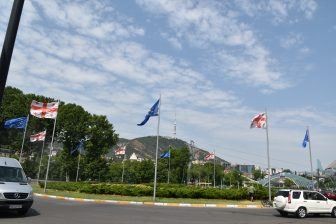
According to Ana, the blue city buses running here were given by the EU.
In fact, they were the same buses we see in Italy.
Ana said eagerly “Because there will be a vacancy in the EU because of Brexit, we are hoping that we will become a member when they decide on the expansion in 2020”.

